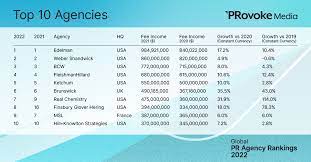PR and Digital Marketing: Unleashing the Power of Synergy for Business Success
The Power of PR and Digital Marketing: A Winning Combination
Public Relations (PR) and Digital Marketing are two powerful tools that, when used together strategically, can propel businesses to new heights in today’s digital landscape. While they serve different purposes, their integration can create a harmonious synergy that maximizes brand visibility, credibility, and engagement.
What is PR?
PR is the practice of managing and maintaining a positive public image for a business or individual. It involves building relationships with various stakeholders, including the media, customers, employees, investors, and the general public. PR professionals use strategic communication tactics to shape public perception and influence opinions about a brand.
The Role of Digital Marketing
Digital marketing encompasses all marketing efforts that utilize digital channels such as websites, search engines, social media platforms, email marketing, content creation, and more. Its primary goal is to reach and engage target audiences online while driving traffic, leads, conversions, and ultimately revenue for businesses.
The Benefits of Integrating PR with Digital Marketing
Enhanced Brand Visibility: Combining PR with digital marketing ensures your brand message reaches a wider audience through multiple channels. PR efforts generate media coverage and earned media placements that can be amplified through digital marketing strategies like social media advertising or content promotion.
Credibility and Trust: PR activities such as press releases or thought leadership articles published in reputable publications build trust in your brand. By incorporating these earned media mentions into your digital marketing campaigns, you enhance your credibility among potential customers who may encounter your brand online.
SEO Boost: Public relations efforts often result in authoritative backlinks from high-quality websites. These backlinks are valuable for search engine optimization (SEO), as they signal to search engines that your website is trustworthy and relevant. Integrating PR with digital marketing ensures that you leverage these backlinks to improve your website’s visibility in search engine results.
Targeted Audience Engagement: Digital marketing allows precise targeting of specific audience segments based on demographics, interests, and online behaviors. By combining PR messaging with digital marketing tactics like social media advertising or email marketing campaigns, you can engage with your target audience directly and drive them towards desired actions.
Successful Examples
Many successful brands have harnessed the power of PR and digital marketing integration:
– Nike’s collaborations with athletes generate media buzz, which is then amplified through digital channels, creating a viral effect.
– Coca-Cola’s PR campaigns, such as their sustainability initiatives or involvement in social causes, are shared through digital platforms to reach wider audiences and increase brand loyalty.
– Airbnb’s public relations efforts generate media coverage that is then leveraged through targeted digital advertising campaigns to attract new hosts and guests.
In Conclusion
PR and Digital Marketing are two essential components of a comprehensive communication strategy. When integrated effectively, they can amplify each other’s impact on brand visibility, credibility, and engagement. By harnessing the power of both disciplines, businesses can create a winning combination that drives growth in today’s highly competitive digital world.
Mastering PR and Digital Marketing: 8 Essential Strategies for Targeted Outreach and Enhanced Online Visibility
- 1. Define your target audience and tailor your PR and digital marketing strategies to reach them effectively.
- 2. Create a strong online presence by optimizing your website for search engines and engaging in social media platforms relevant to your industry.
- 3. Utilize content marketing to provide valuable information to your audience, establish thought leadership, and drive traffic to your website.
- 4. Build relationships with influencers or bloggers in your industry who can help amplify your brand’s message and reach a wider audience.
- 5. Monitor online conversations about your brand using social listening tools, allowing you to address any issues or engage with positive feedback promptly.
- 6. Invest in paid advertising campaigns on platforms like Google Ads or social media ads to increase brand visibility and drive targeted traffic.
- 7. Leverage email marketing by building an opt-in subscriber list and sending regular newsletters or promotional offers to nurture customer relationships.
- 8. Continuously analyze data from various digital marketing channels, such as website analytics or campaign metrics, to optimize strategies for better results.
1. Define your target audience and tailor your PR and digital marketing strategies to reach them effectively.
To achieve success in PR and digital marketing, it is crucial to define your target audience and tailor your strategies to effectively reach them. Understanding your audience’s demographics, interests, and online behaviors allows you to create targeted and relevant content that resonates with them. By aligning your PR efforts with specific digital marketing tactics, such as social media campaigns or email marketing, you can engage with your audience on the platforms they frequent most. This approach ensures that your messages are delivered to the right people at the right time, increasing the likelihood of building meaningful connections and driving desired actions from your target audience.
2. Create a strong online presence by optimizing your website for search engines and engaging in social media platforms relevant to your industry.
In the ever-expanding digital landscape, creating a strong online presence is crucial for businesses to thrive. One effective way to achieve this is by optimizing your website for search engines and actively engaging in relevant social media platforms. By implementing search engine optimization (SEO) techniques, such as keyword research, on-page optimization, and link building, you can improve your website’s visibility and organic traffic. Additionally, leveraging social media platforms that align with your industry allows you to connect with your target audience directly, share valuable content, and build meaningful relationships. This combination of website optimization and social media engagement enhances your brand’s online visibility, credibility, and customer engagement, ultimately driving business growth.
3. Utilize content marketing to provide valuable information to your audience, establish thought leadership, and drive traffic to your website.
In the realm of PR and digital marketing, an effective strategy is to harness the power of content marketing. By creating and sharing valuable information that resonates with your target audience, you can establish thought leadership in your industry. This approach not only positions your brand as a trusted source of knowledge but also drives traffic to your website. By consistently delivering high-quality content through various channels, such as blog posts, articles, videos, or infographics, you can engage with your audience and build lasting relationships based on trust and expertise. Through content marketing, you have the opportunity to showcase your brand’s unique insights while providing valuable information that meets the needs of your audience.
4. Build relationships with influencers or bloggers in your industry who can help amplify your brand’s message and reach a wider audience.
One crucial tip for successful PR and digital marketing integration is to build strong relationships with influencers or bloggers in your industry. These individuals have a significant following and can play a vital role in amplifying your brand’s message and reaching a wider audience. By collaborating with influencers or bloggers, you can tap into their established credibility and engage with their loyal followers. Their endorsement or mention of your brand can greatly enhance your visibility, credibility, and ultimately drive more traffic and conversions. Building these relationships takes time and effort, but the benefits of partnering with influential voices in your industry are well worth it in today’s digital landscape.
5. Monitor online conversations about your brand using social listening tools, allowing you to address any issues or engage with positive feedback promptly.
In the realm of PR and digital marketing, it is crucial to keep a finger on the pulse of online conversations surrounding your brand. By utilizing social listening tools, you can monitor and track what people are saying about your business across various platforms. This enables you to promptly address any issues that may arise, ensuring that customer concerns are addressed in a timely manner. Moreover, engaging with positive feedback allows you to foster a sense of community and build stronger relationships with your audience. By actively monitoring online conversations, you can stay ahead of the curve and make informed decisions to enhance your brand’s reputation and customer satisfaction.
6. Invest in paid advertising campaigns on platforms like Google Ads or social media ads to increase brand visibility and drive targeted traffic.
To boost brand visibility and attract targeted traffic, investing in paid advertising campaigns on platforms such as Google Ads or social media ads is a crucial step. These platforms offer powerful targeting options that allow businesses to reach their desired audience based on demographics, interests, and online behaviors. By strategically allocating budget towards paid advertising, businesses can ensure their brand message reaches the right people at the right time, increasing the chances of driving conversions and achieving their marketing goals.
7. Leverage email marketing by building an opt-in subscriber list and sending regular newsletters or promotional offers to nurture customer relationships.
One effective tip for leveraging the power of PR and digital marketing is to build an opt-in subscriber list and utilize email marketing to nurture customer relationships. By encouraging customers to subscribe to your newsletter or promotional offers, you gain direct access to their inbox, allowing you to stay top-of-mind and engage with them on a regular basis. Sending well-crafted newsletters with valuable content, updates, or exclusive offers can help strengthen customer loyalty, drive website traffic, and even lead to increased conversions. This strategy combines the personal touch of email communication with the scalability and targeting capabilities of digital marketing, making it an invaluable tool for building lasting relationships with your audience.
8. Continuously analyze data from various digital marketing channels, such as website analytics or campaign metrics, to optimize strategies for better results.
To achieve better results in PR and digital marketing, it is crucial to continuously analyze data from various digital marketing channels. By closely monitoring website analytics and campaign metrics, businesses can gain valuable insights into audience behaviour, engagement rates, conversion rates, and more. This data-driven approach allows for the identification of areas that require improvement or adjustment in strategies. By optimizing campaigns based on data analysis, businesses can refine their targeting, messaging, and tactics to achieve better results and maximize the return on investment (ROI) of their digital marketing efforts.




